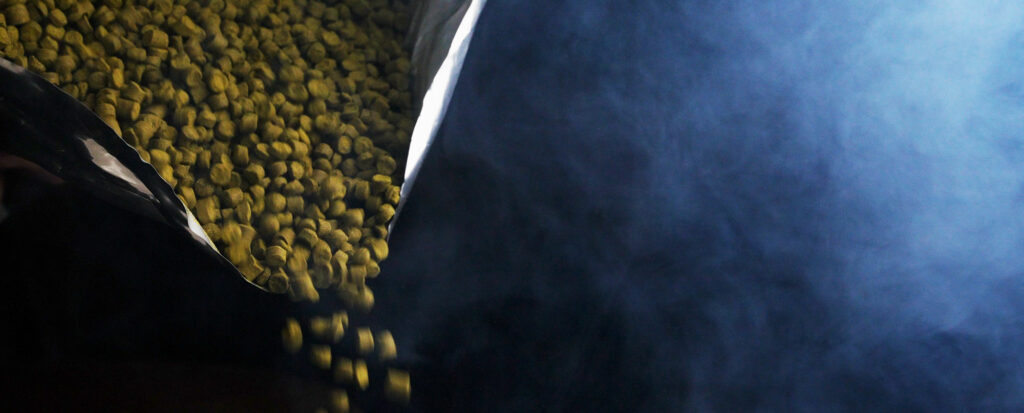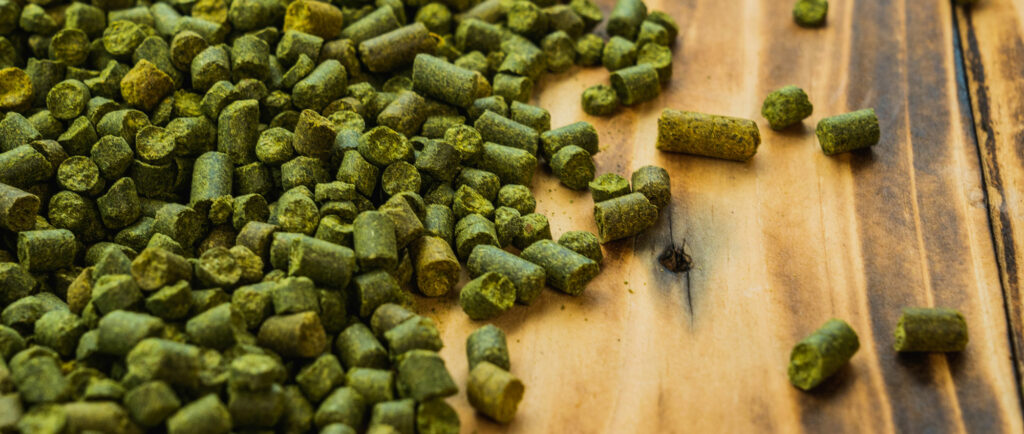Dry hopping techniques have evolved greatly. With the information now available, brewers are starting to use these techniques to add an explosive hop aroma to their beers.
Double Dry Hop?
The term DDH stands for Double Dry Hop. It is possible to dry hop during fermentation, conditioning, or beer storage. The aroma compounds are meant to be dissolved and dispersed in the process. However, many hop compounds are hardly or are only slightly soluble. Brewers can make use of the following parameters to positively influence solution behaviour:
- Alcohol Content
- Exchange surface & movement
- Yeast activity/temperature
From a practical perspective, spreading the dry hopping over the conditioning and storage phases makes sense. During maturation, the alcohol content and the slightly higher temperature both help. Gentle circulation is ensured by means of secondary fermentation.
During storage, the alcohol content helps again. As no more yeast or trub residue is present to absorb the aroma compounds, no flavour is lost. However, the beer is no longer moving.
Making sense
From a sensory perspective, dry hopping techniques should extend to dry hopping during the main fermentation. This ensures natural circulation with the help of yeast activity and the creation of additional pleasant, fruity aromas. In addition, the higher temperature contributes to the dissolution and distribution of the compounds. Yeast activity and temperature also influence which aroma compounds are expelled with the CO2. However, the yeast cannot then be reused.
In conclusion
Dry hopping techniques show that each point of dry hopping lends a different hop aroma to the beer. More dry hopping consequently results in greater complexity. Research has even shown that multiple dry hopping can lead to a more intense aroma using a lower quantity of hops. As the dissolving behaviour of the hop aroma compounds is suboptional, adding astronomical quantities just doesn’t help; it only serves to increase beer loss.
Smarter, more deliberate hop additions, instead of larger quantities, are the way forward. The best DDH is a TDH Triple dry hop!

